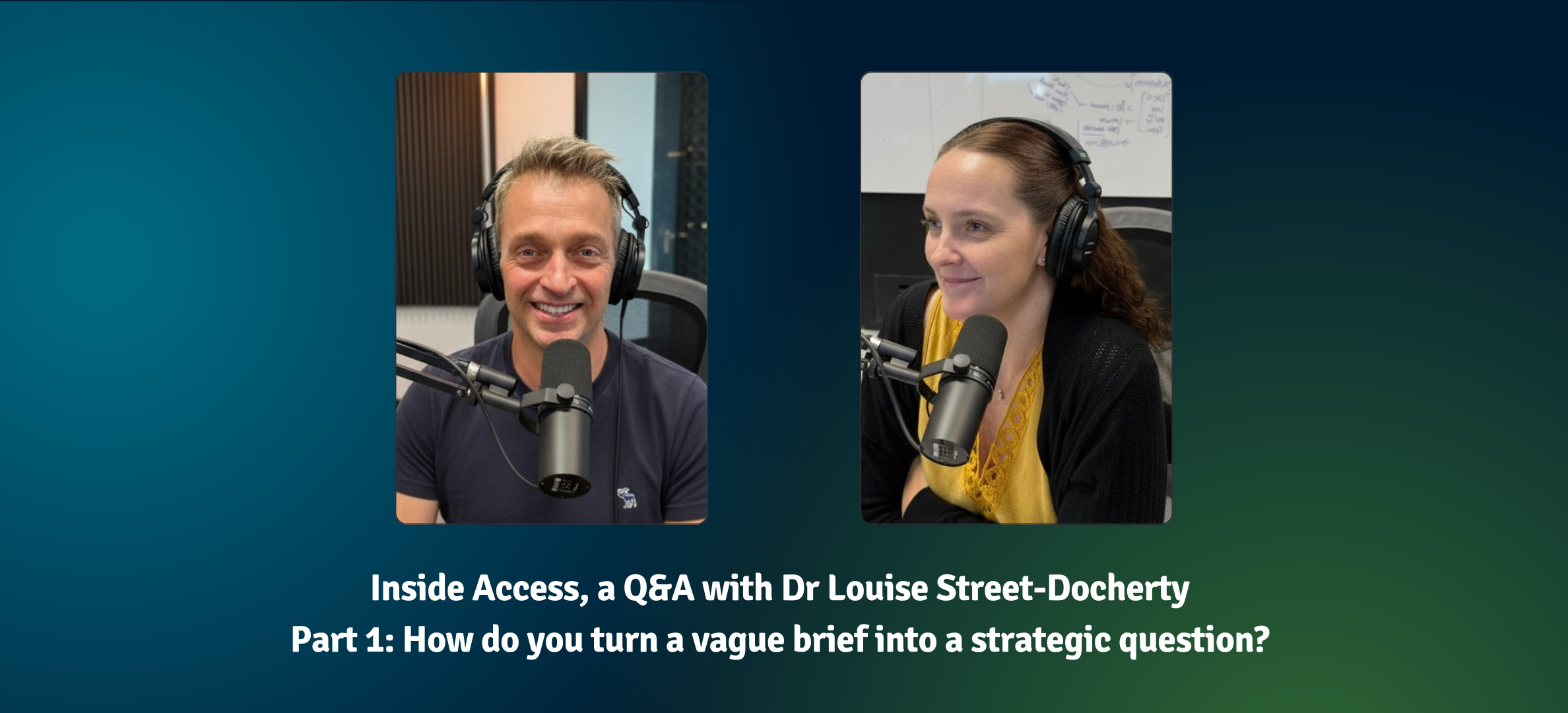
Every market access project begins with a question. But when that question is vague or misaligned, the project quickly veers off course. Time gets wasted, teams double up on work, and outputs often fail to resonate with the intended audience.
That early scoping moment is critical. It is where clarity is created or confusion begins.
At Knowledgeable, we believe every good project starts with a well-formed question. That is why we have built tools to help consultancies capture the strategic intent of a project from day one and carry it through to final delivery. But tools are only part of the equation. Framing a strong brief takes judgment, experience, and clear communication.
To explore this further, I asked our VP of Market Access, Louise Street-Docherty, to share her perspective. Louise has worked with clients across therapy areas and markets, and has scoped hundreds of projects under real-world pressure. Her approach is thoughtful, clear, and highly practical.
Here is what she had to say.
What are the biggest mistakes people make when trying to scope a market access project?
Louise:
One of the most common mistakes is assuming the project brief is clear just because work has started. The team may have kicked off the literature search or begun building slides, but no one has stopped to ask what problem we are solving.
Another issue is treating the client’s request as fixed, rather than exploring what is really behind it. If a client asks for a pricing landscape, it matters whether they mean list prices, net prices, or country-specific payer behavior. Without that clarification, the team risks delivering something accurate but unhelpful.
Something else I've witnessed in the past is the internal project team not being fully aligned. If different parts of the team interpret the scope differently, that disconnect shows up later in rework and review delays. It is always worth spending the time up front to agree, as a team, what success looks like.
How do you balance scientific rigor with commercial context when defining project goals?
Louise:
It is important not to think of these as trade-offs. A good strategic question should hold both. Scientific rigor ensures your conclusions are credible. Commercial context ensures they are useful.
For example, if a client wants to understand clinical differentiation, you need to look at both the data and how payers interpret it. That means understanding endpoints, mechanism of action, and biomarker strategy, but also value drivers, positioning, and past HTA assessments.
The key is to define a question that leads naturally to both types of insight. If you lean too far in one direction, the work may either lack depth or miss the decision it is meant to support.
What signals tell you a brief is not clear enough?
Louise:
If no one on the team can summarize the purpose of the work in one sentence, the brief needs more work.
Another sign is when people start gathering everything, just in case. That usually means they are not sure what matters most. The result is often a large evidence base with no clear story.
You also see it when different stakeholders give slightly different explanations of the goal. That means the team is not aligned, and that misalignment will show up in reviews or delivery.
Scoping is not about slowing things down. It is about making sure the time you spend is focused on something that matters.
How do you align internal teams and external stakeholders around a shared goal?
Louise:
Start by writing the goal down. Not in a vague way, but in terms of what decision the work supports and what evidence is needed.
Next, share that framing and invite feedback. Ask whether anything important is missing. Encourage different functions to explain how they interpret the question.
Then use a consistent structure to hold that alignment. That might mean tagging the project with the right disease area, market, or strategic concept. It might mean using a common set of filters in your literature search. The important thing is that everyone sees the same framing and works from the same logic.
How is Knowledgeable built to help teams clarify scope early and standardize how strategic questions are framed across projects?
Louise:
We built Knowledgeable to support exactly this kind of thinking. Every project starts with a structured setup. You define the goal, select relevant filters like mechanism of action or disease area, and tag the concepts that matter most.
That structure lives with the project. So whether you are screening abstracts, summarizing evidence, or preparing outputs, you are always grounded in the original question.
Because the ontology is based on real consulting work, the framing reflects how access decisions actually get made. Everything is saved and shared, so the whole team stays aligned from start to finish.
It does not replace judgment, but it gives consultants the structure they need to apply their judgment more consistently and at scale.
Summary
When you start with a strong question, everything that follows becomes easier. Teams move faster. Outputs are sharper. Review cycles shorten. And clients get insight that leads to action.
Louise has shown how that early scoping moment is not just a technical step. It is a leadership moment. It is where you bring structure to complexity, give purpose to the work, and create shared understanding.
At Knowledgeable, we have built the tools to make that process easier and more reliable. Because the best strategies start with the right question. And the right question starts with clarity.

